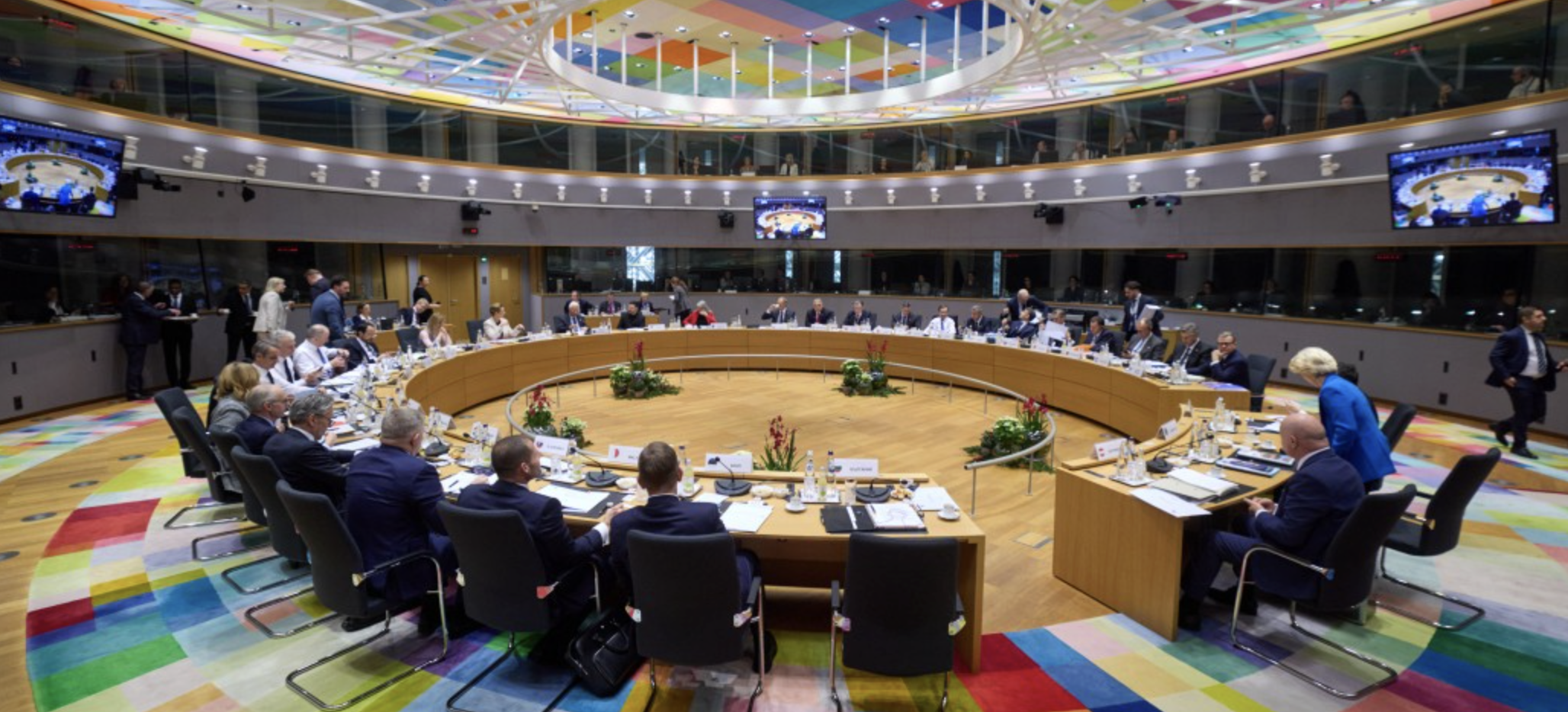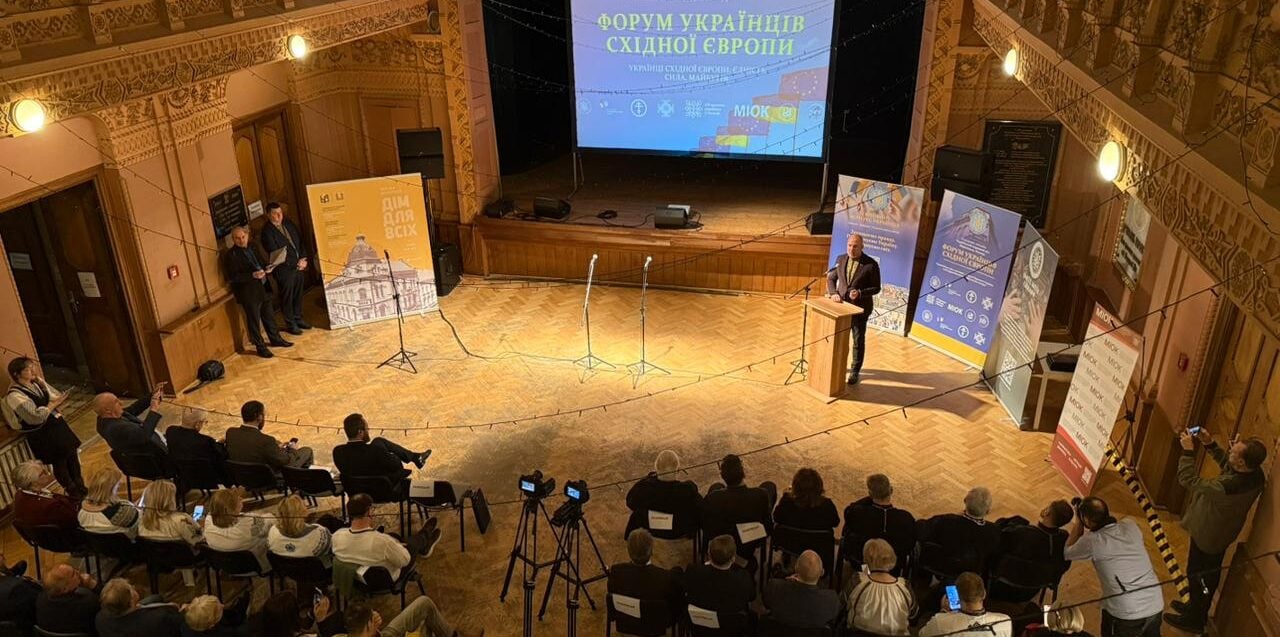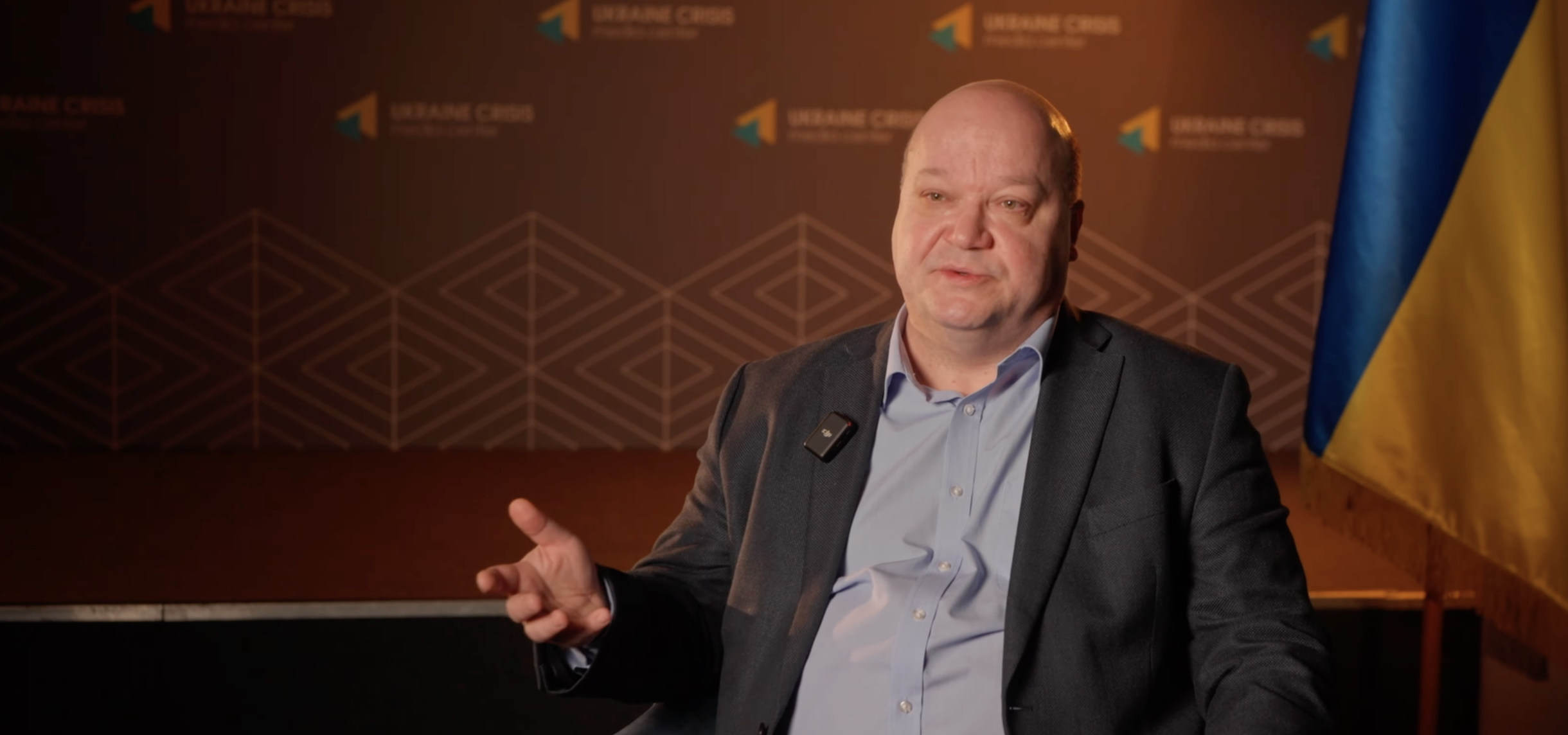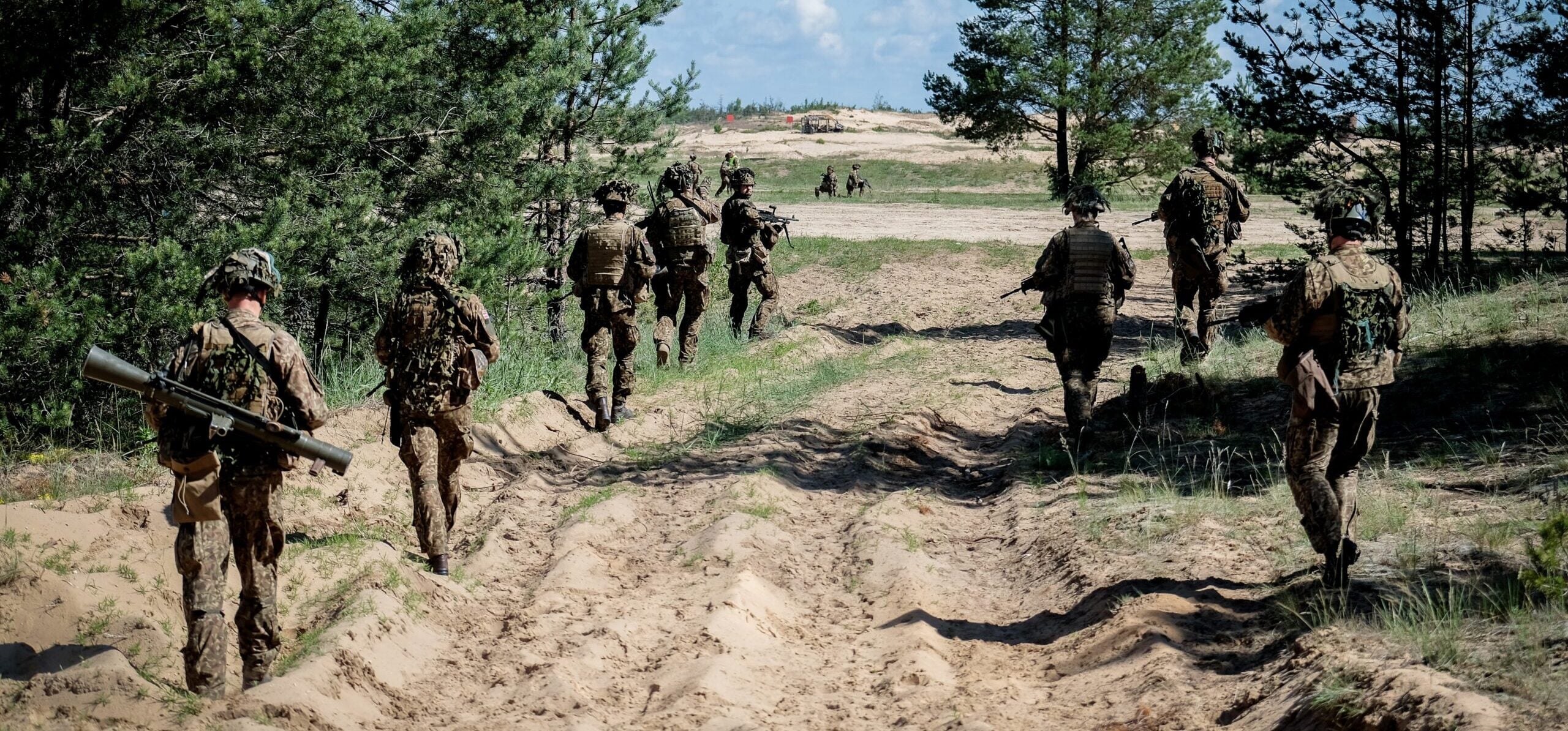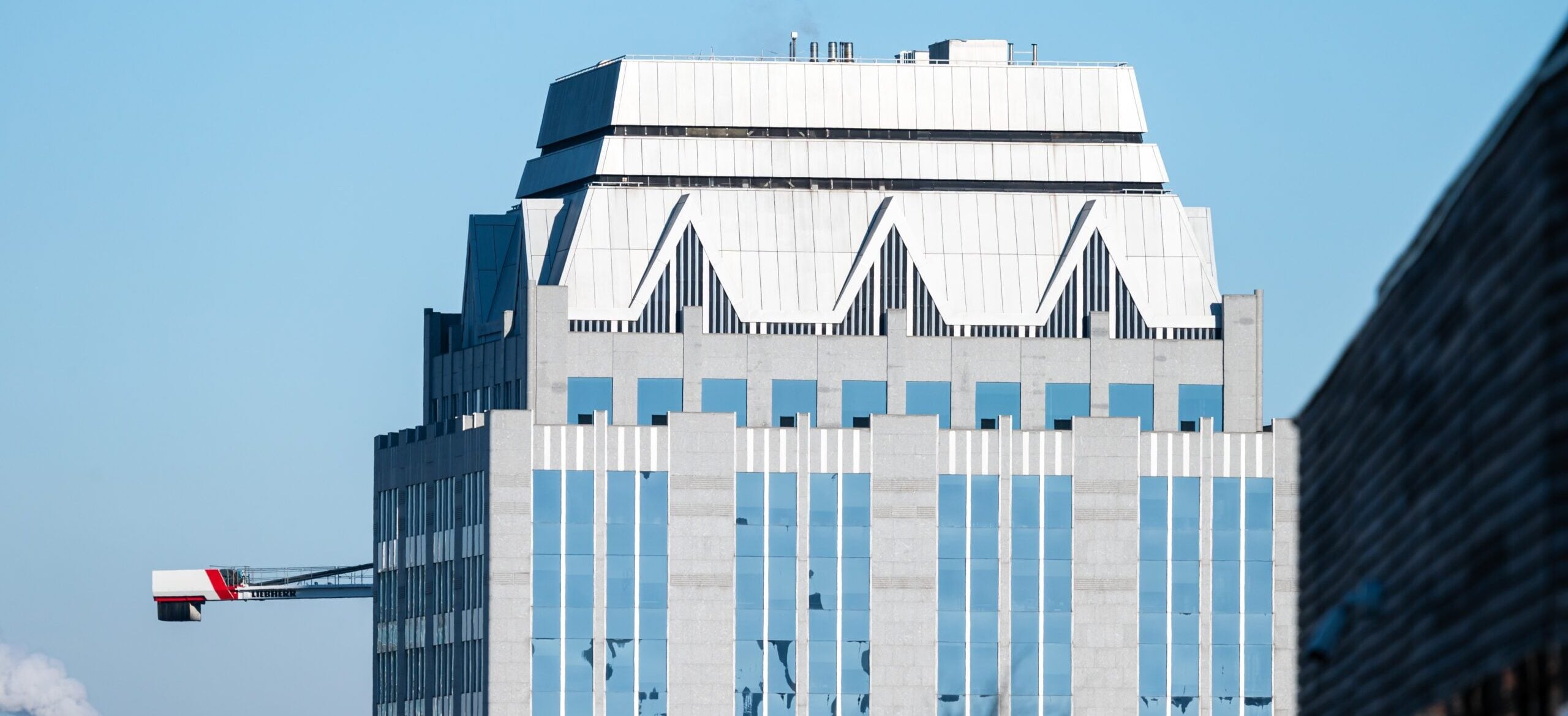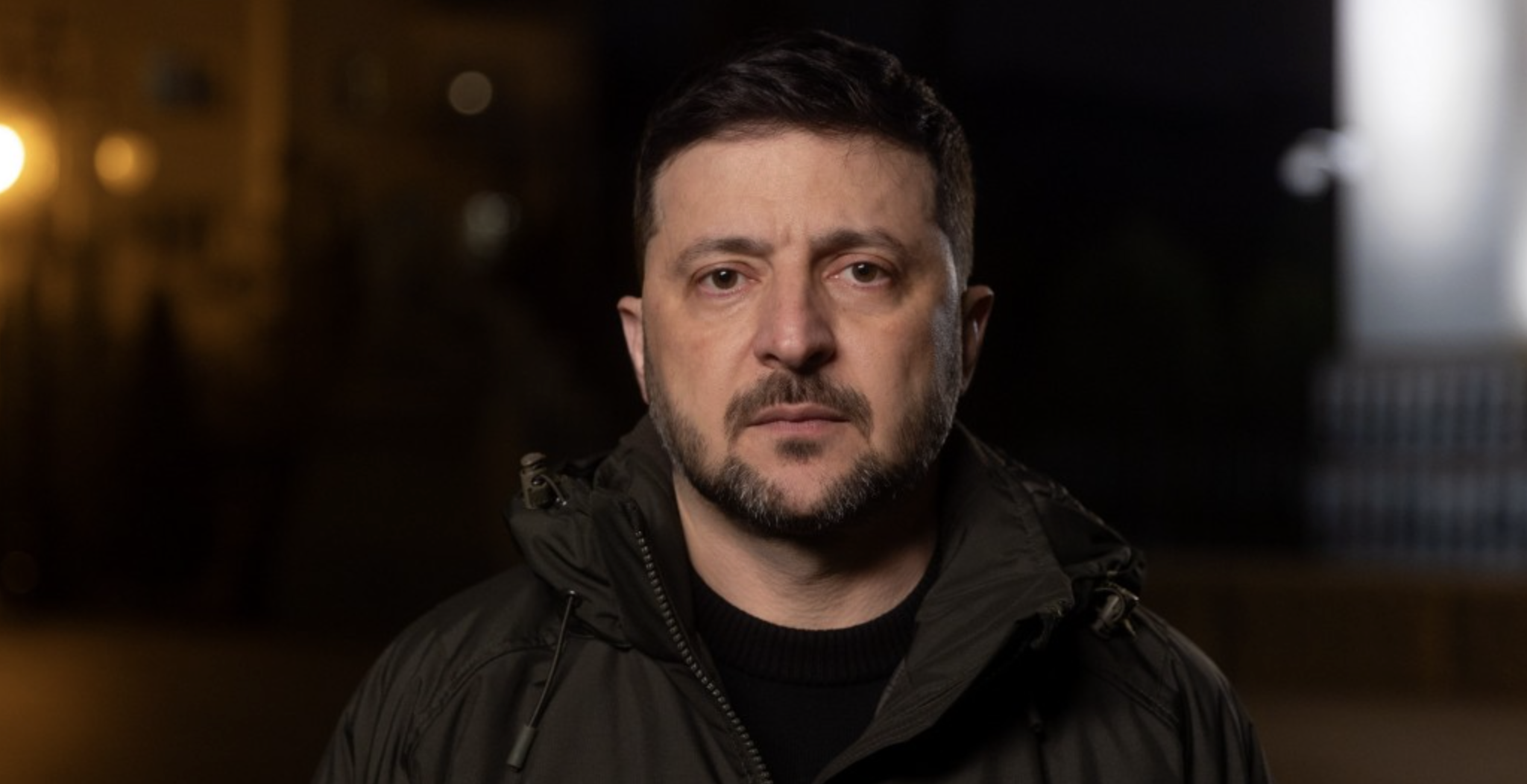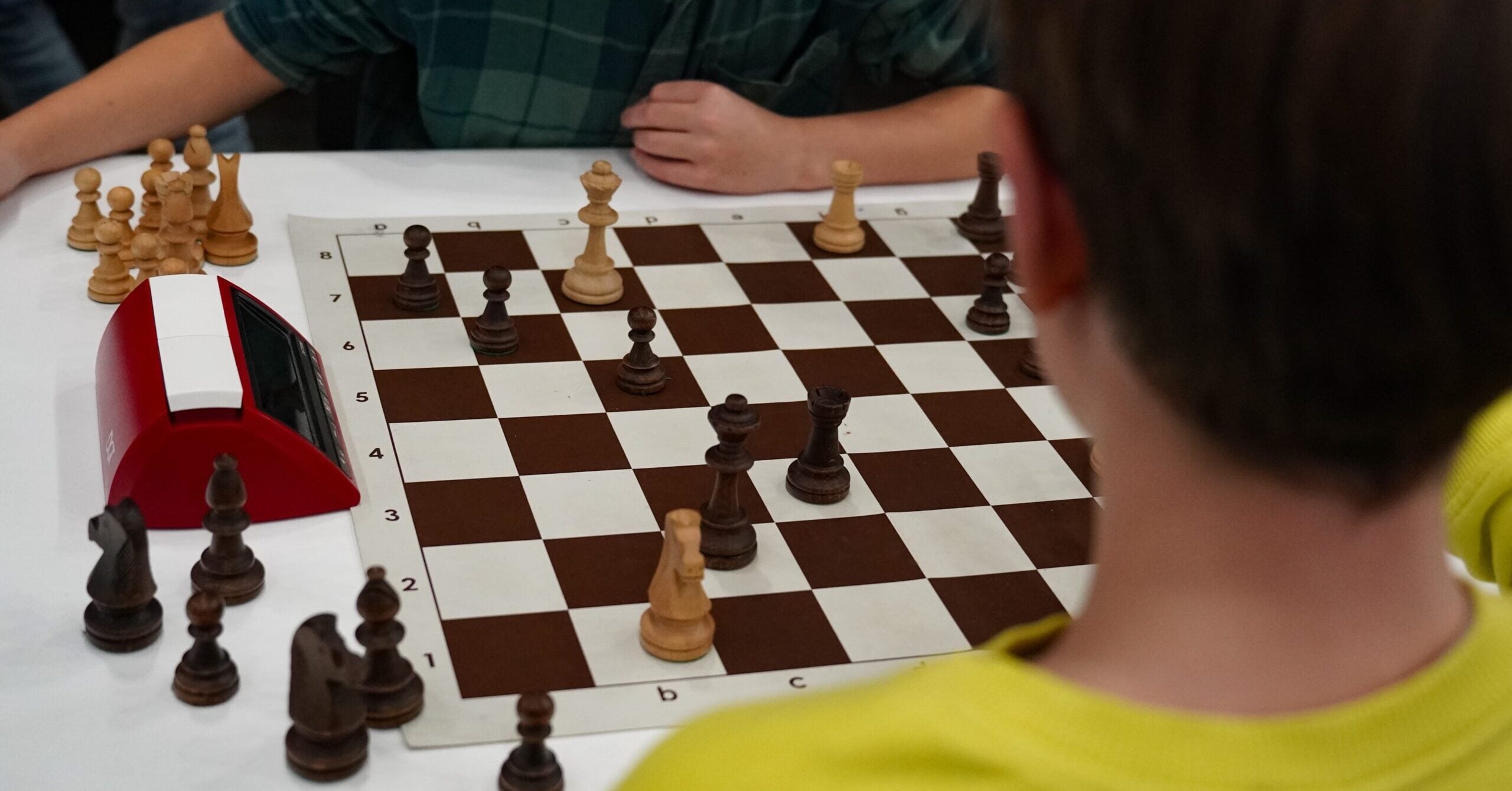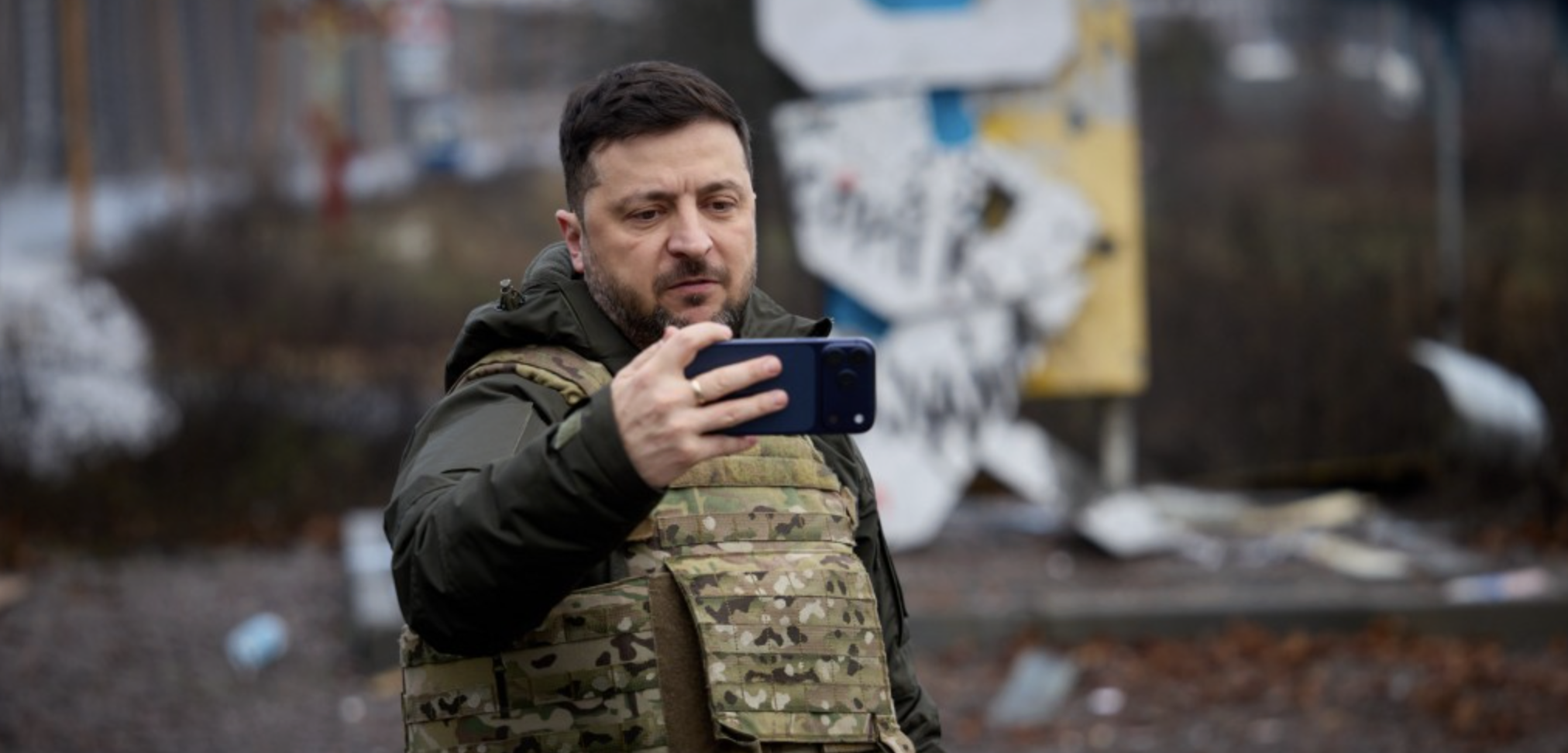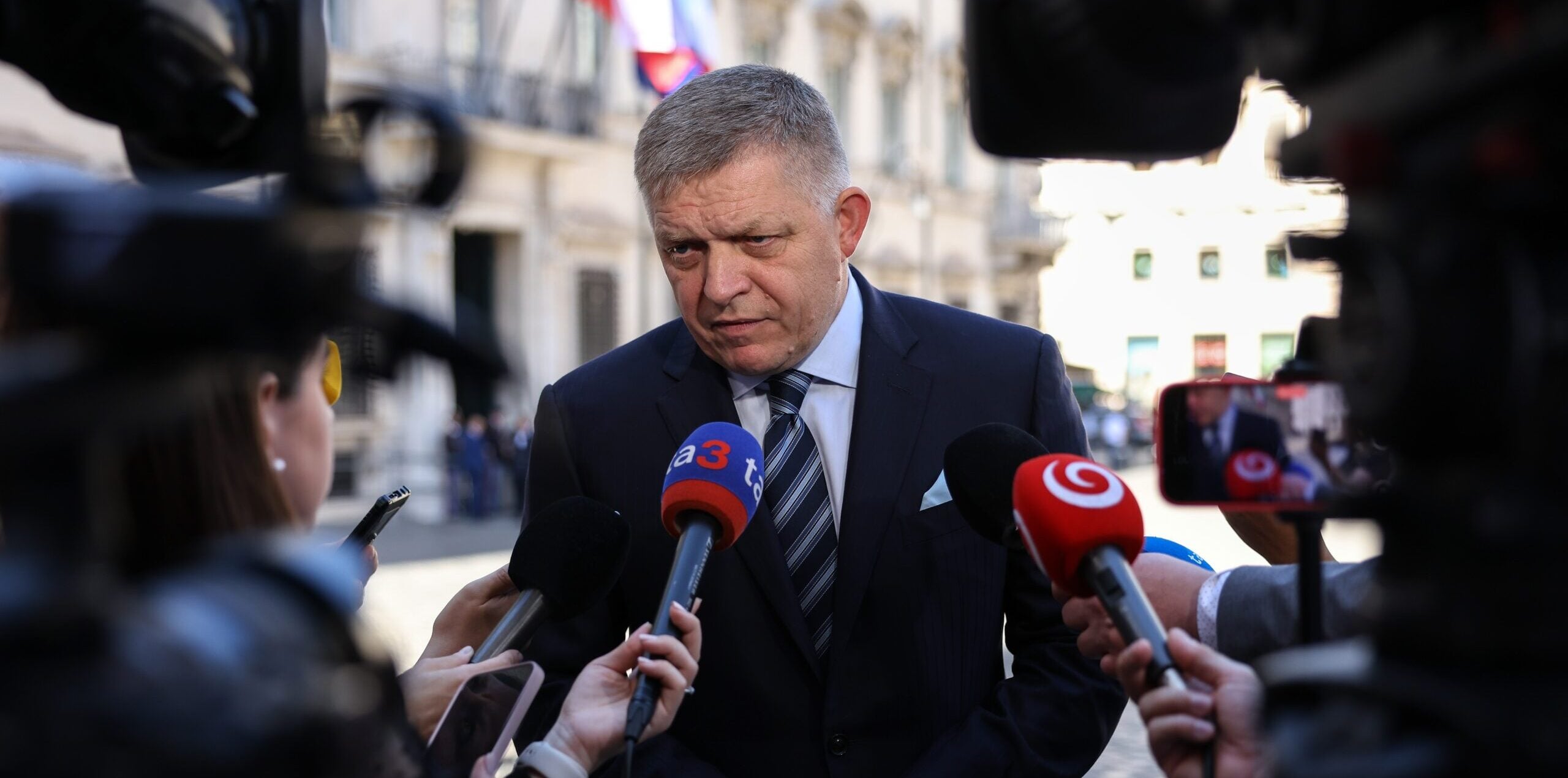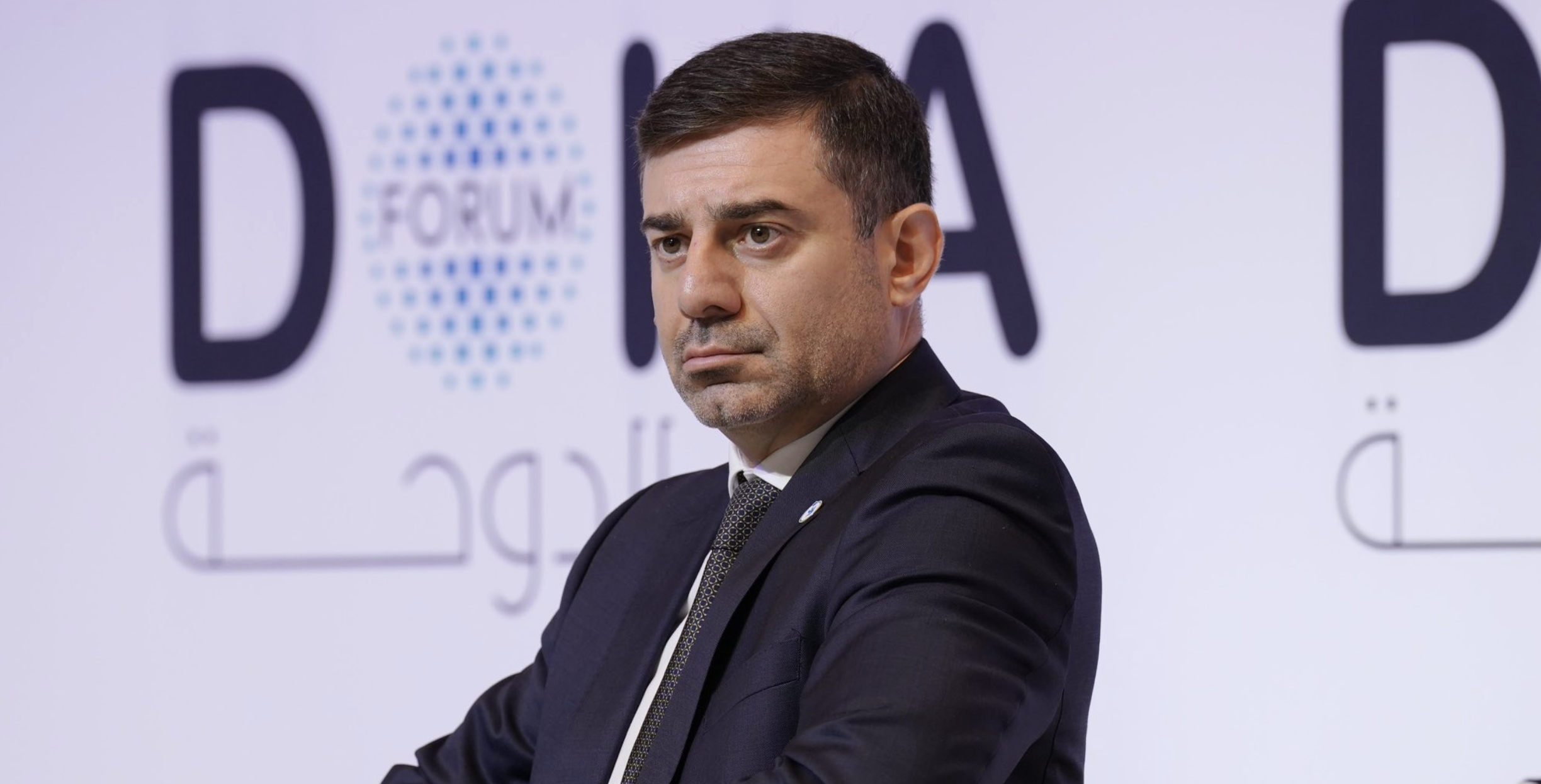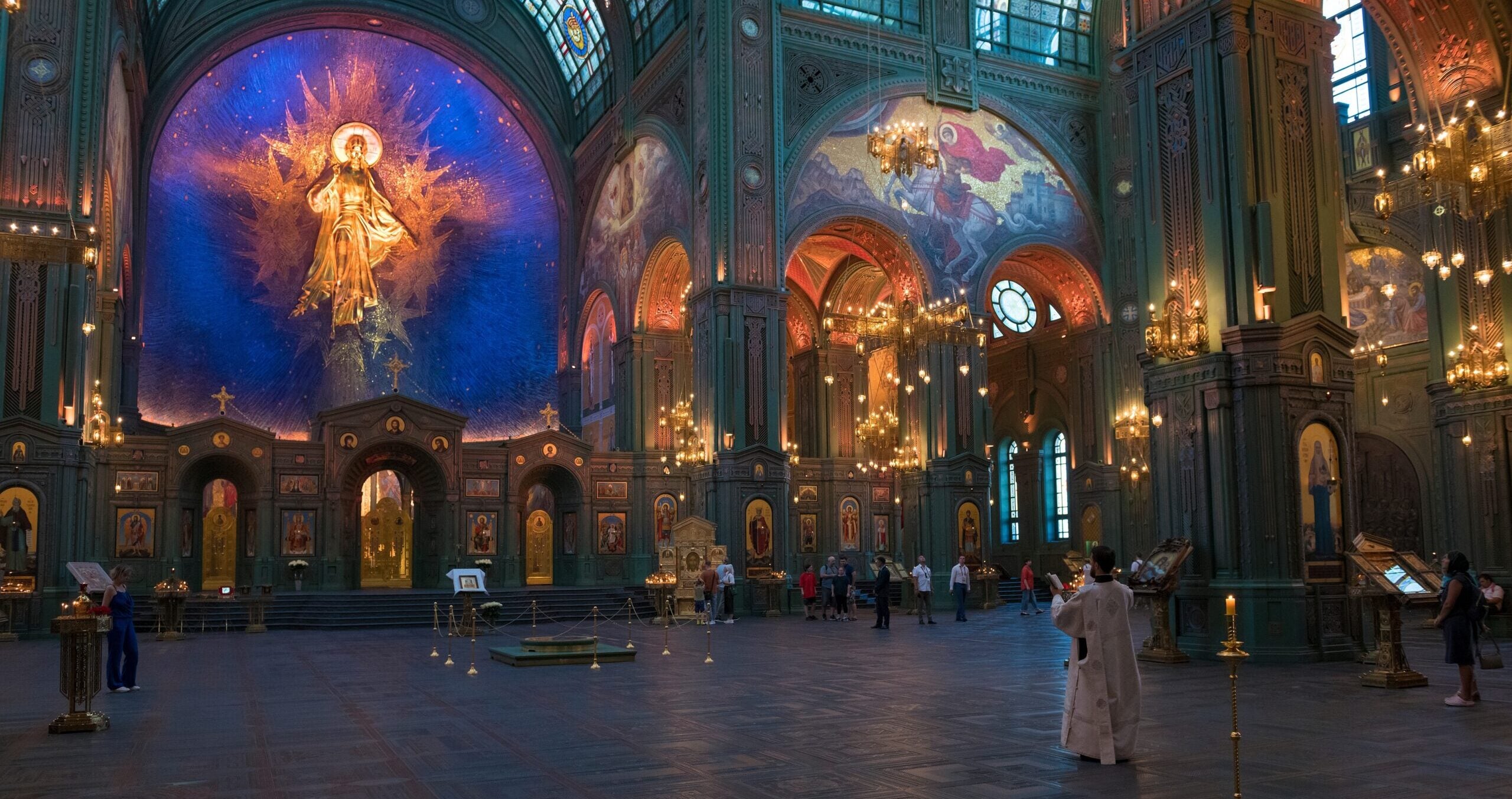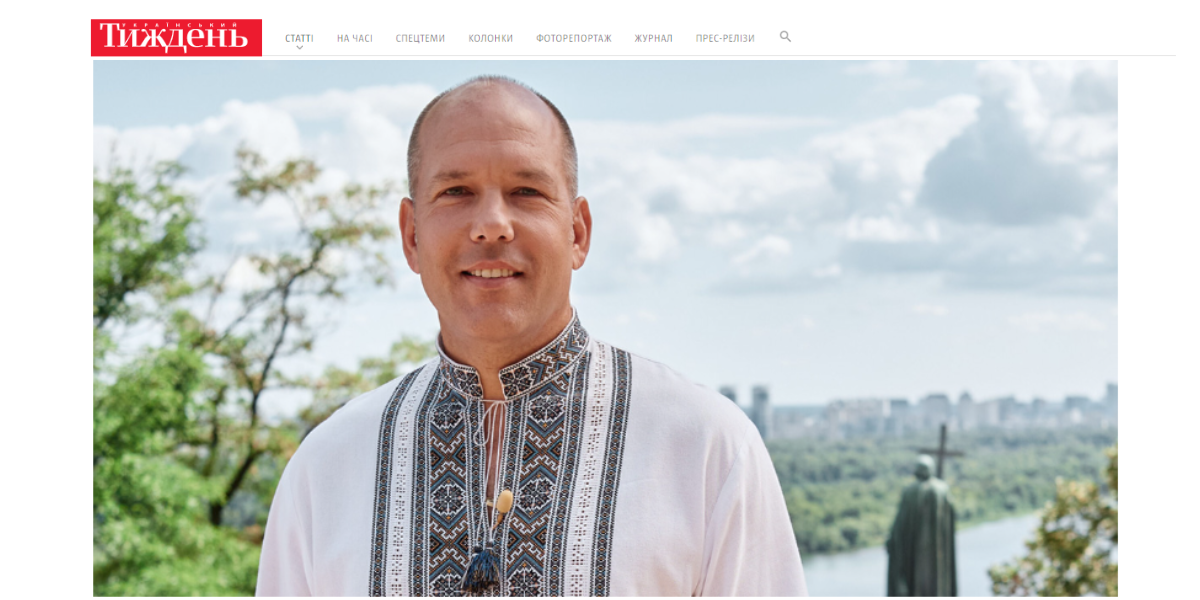
Tyzhden spoke with Ukrainian World Congress President Paul Grod about how the Ukrainian diaspora influences the policy of major powers and international organizations in order to support Ukraine, what resources UWC attracts to help the Armed Forces of Ukraine and how it will help build Ukraine after victory.
– During the 77th United Nations General Assembly, you called on the UN and world leaders to establish a war crimes tribunal to hold Russia accountable, as well as to strip it of its veto power in the UN Security Council. What is the probability that these calls will be implemented?
– Our appeals should be ambitious and appropriate, but at the same time realistic. The Ukrainian World Congress believes that the creation of an international tribunal for Russian war crimes is necessary, realistic, and possible. Obviously, this is an ambitious task, because it is necessary to gather the vast majority of UN members. We see that some votes in the organization are positive towards Ukrainian requests, for example, to allow President Zelensky to speak virtually, but in some moments, not so favorable. However, the UN has a rather serious coalition that supports Ukraine. And the best option is to create such a tribunal there.
There are other options, but we will focus on the UN first. The International Criminal Court could also, and wants to, take on such a mission. But they have limited jurisdiction, so this is not the best option for Ukraine. Regarding Russia’s veto, this is also very important, especially in the context of the overall effectiveness of the UN Security Council. We understand Russia’s game. It is trying to resolve these issues – it wants to include other countries in the Security Council. But we will advance our demands, this is our priority. It is very important that this international tribunal is created, but it is also important that the International Criminal Court is in place. They should work in parallel, because they will have two separate mandates and, accordingly, greater opportunities.
– And what are the opportunities for the UWC to influence the governments of countries and international organizations?
– Politics is the influence of civil society on political affairs because politicians are elected. And it is very important that politicians who want to be elected reckon with their voters. Therefore, we are trying to form a coalition of Ukrainians and friends of Ukraine to influence the political processes in the countries where we live. Ukrainian organizations from more than sixty countries of the world belong to the UWC. We work with each country to increase its political influence. Some communities are more mature and some are less so. But it can happen very quickly. For example, a new community in Norway has become very powerful and influential in a short time. They actively work with their politicians.
It is important that we can speak the languages of the countries where we live. And not only to speak but also to think in their political culture. That is why the UWC works with communities to increase their influence on political processes and support for Ukraine in their countries. And this is precisely the importance of the world diaspora. There are few diasporas in the world like the Ukrainian diaspora, which is effectively coordinated, united and influential. We also cooperate with our friends within the global coalition of Eastern and Central European communities, which includes the Polish community and the Baltic communities.
Everywhere in the world, we have our political weight and can influence the situation together. There are even examples when political players in certain countries helped us influence processes in other countries. For example, we have a very good relationship with the Canadian government. Despite the fact that we are in court with them, we understand each other. Due to the relationship between Canada and Germany, the UWC was involved in their negotiations. Canada has put us virtually on the front lines of negotiations with the German government, and we are now working with Chancellor Olaf Scholz and Economy Minister Robert Habeck to influence the situation.
– Do you mean the situation with the turbines?
– With turbines, and, in general, regarding the energy issue. We are partly perceived as a bridge between Ukraine and other countries. It is obvious that we are an independent public organization. As an elected person, I depend on our stakeholders, and our stakeholders are our communities. And so we can think independently. Quite often, we really cooperate closely with the authorities in Ukraine, but there are times when we disagree. And this independence is very important.
– Tell us more about the UWC’s lawsuit against the Canadian government.
– The lawsuit is working. It was very important, because, despite the fact that Canada is a great friend of Ukraine and will always be, we had to say that its decision was wrong. Although we understand political and economic issues, we had to take a principled position. And that’s why we filed this lawsuit and will continue to pursue it. It takes time, but it was important for us to tell the democratic world that we have no intention of giving up and will defend Ukraine at every step. The world must understand that we will watch and actively act to secure stronger sanctions against Russia. And this message that we sent to Canada and Germany is necessary. Vice Chancellor Habek called me to hear my position on why this is important. I expect that in the coming weeks, you will see additional lawsuits in other countries around the world where we see sanctions loosening or countries or companies trying to avoid them. We will continue to monitor and engage in legal or political processes to strengthen sanctions.
– Is it possible to fully use Ukrainian resources in the world? For example, in the USA or Canada, where there are many influential, successful people among Ukrainians?
– Today, everyone, who has a dash of Ukrainian DNA, is ready to help Ukraine. But this is not only a question of Ukrainian origin. All sane people in the world, when they see this war, and the crimes committed by Russia, are ready to help. We’ve been seeing this since full-scale war broke out. Therefore, it is not even a question for Ukrainians. Although the fact that Ukrainians have lived in some countries for more than 130 years also helps. A prime minister or a president of a country usually knows someone from Ukraine and feels a certain closeness. We are truly global people who are respected. Especially now, when the world has seen how Ukrainians bravely and courageously defend themselves. This shows that the Ukrainian people are very powerful, and our authority in the world today is incredibly high, probably more than that of any other nation.
– Why did the world suddenly unite around Ukraine?
– It’s difficult to say about all countries. There are countries of different categories. Democratic countries such as the EU, North America, and Japan understood who Russia is. But, still, they thought that they could work with this country normally. They spoke as such, but everything is complicated. They play political games. But they still at least adhere to human norms, not to mention international law. Because of this full-scale war, they saw that this country [Russia] and its leadership could not adhere to any human standards, and, therefore, the attitude towards Russia changed radically. The war opened everyone’s eyes to what Russia is and who Putin is. And that is why the world is so supportive of Ukraine today. But it is important that they understand that it is not only Putin. That it is, unfortunately, a zombified Russian people. We have to relay that to the world. Everyone is looking for a way to solve this problem, but it won’t be easy and, at one point, Putin will die or someone will shoot him. This is a question of Russian policy. They must understand that they can no longer be an empire, that such a world no longer exists. Russians must learn to live in a normal world where there is a rule of law and respect for human rights.
So far, the UWC has focused its activities on Europe and North America and has significantly supported Ukraine’s accession to the EU. Our priority was to provide full economic and military support to Ukraine, and I think that it is solid now. However, we still have big challenges with some countries in Latin America, Africa, and Asia. In the future, we will focus more on these countries. Russia wants to create the feeling that there is the West against everyone else, and that America, Europe, and we are against everyone. We cannot allow this, so it is important to work with these countries so that they also feel close to the Ukrainian cause.
– For a long time, the Ukrainian authorities barely used the powerful resources of the Ukrainian diaspora, and relations between Ukraine and global Ukrainians were mostly symbolic. Has the situation changed today? How fruitful is the cooperation?
– Cooperation with the authorities is constantly improving. Each new government, since the presidency of Viktor Yushchenko, began to better understand how powerful the diaspora really is. Today, we closely cooperate with both the president’s office and with the ministries of foreign affairs, defense, education, and culture. I would say that there is a constant evolution in our relationship. We try to not only help, but also to cooperate. And this applies to various issues. Before the war, there was talk of commemorating the Holodomor, Babin Yar, or the Revolution of Dignity. This is important for the global Ukrainian people because we are one nation of 65 million people.
Today, it is about protecting the country. All Ukrainians in the world perceive Ukraine as their country, the way Jews see Israel as their country, which must, before all else, be protected. Therefore, our cooperation takes place at the military, economic and political levels. Just last week, I was in New York, where I had several meetings with the Minister of Foreign Affairs and the Prime Minister of Ukraine. We discussed current practical strategies and tactics. This is how we coordinate our work. The UWC is not affiliated with the authorities and does not receive any funding from the Ukrainian or any other authorities. We are a public independent organization. But, today we need to work closely together so that we can help Ukraine win this war and unite the whole world in support of Ukraine.
– Are there cases when Ukrainian officials ask for your help?
– There were such cases. And sometimes we hear from our communities that in some countries an ambassador is not doing well, is not fulfilling their duties, or is playing their own game. In such cases, we can appeal directly to the highest authorities. Of course, we don’t spread gossip. We must have evidence to pass this information on. But that’s how it happens. We protect the interests of the Ukrainian people, and therefore, if someone does not manage well, we can draw attention to it. When Viktor Yanukovych was President, we strongly disagreed with the government of the time and could openly speak on the international stage, defending the Ukrainian people. Because it is not the government that is a priority for us, but the Ukrainian people, whether in Ukraine or outside its borders. And we will always stand in Ukraine’s defense.
– The UWC allocated more than $30 million to help Ukrainian fighters. How did you raise this money? How is fundraising going?
– The 30 million was raised by UWC through the “Unite With Ukraine” program for support of Ukraine’s defenders. But, recently we turned to our organizations and asked how much they have collected since the beginning of the war to support Ukraine. It is almost half a billion dollars. For example, the Ukrainian Canadian Congress, which is a UWC member, in addition to raising money for the “Unite With Ukraine” program, has a special fund where more than $65 million has been collected to support Ukraine in the humanitarian sphere. In the USA, Australia, Great Britain, in every country, they also collect in this way. As for UWC, we collect at the global level. For example, the province of Alberta, Canada, gave us $5 million to support defenders of Ukraine. Foundations and private individuals give us money (from $100 or $1000 each). We also have partners, for example, the Saint Javelin brand. This is a recently created company that makes t-shirts, various emblems in support of Ukraine and transfers funds raised to “Unite With Ukraine”. This is how all our communities in the world work.
– How did the war affect the Ukrainian World Congress? What new priorities and areas of work do you see for yourself?
– Our communities in the world understood very well that this war with Russia will not leave us quickly, and the state of readiness to defend Ukraine must be constant. The Ukrainian people have been at war with Russian imperialism for more than 300 years. And we, maybe, forgot that a little after 1991. Perhaps, we thought that we would be able to live peacefully with such a neighbor. But now we understand, like Israel, that this war will not leave us quickly. Perhaps the hot phase, when we win, will subside somewhat, but Russian chauvinism will not give us peace. And that’s why we, as global Ukrainians, must be ready for this. I hope the war has changed us, and we will hold united. And in order to hold on, we need to build institutions around the world to educate conscious Ukrainians for many generations. Kindergartens, schools, churches, youth and professional organizations are needed for this. A whole network of Ukrainians should exist outside of Ukraine. We see that Ukraine will be in danger for a long time. This challenge has become much more serious for us today than ever before.
– Will the new wave of migration caused by the war change the face of Ukrainians abroad?
– In our history, we have already had five waves of emigration of Ukrainians, and each wave has its own characteristics. My parents belonged to the third wave, which was the political emigration after the Second World War. They raised us in such a way that we should fight for the independence of Ukraine. I remember when I was young, when I went to demonstrations with my parents, holding the Ukrainian flag or some kind of poster. After the declaration of independence, there was an economic wave. And in recent months – the fifth wave – as sociologists say, very politically conscious people have come. They did not leave earlier because they did not want to flee Ukraine due to economic reasons, but were forced to do so due to security reasons. They will either return to Ukraine, or they will remain and be a very influential political force. Therefore, it is very important for the UWC and our global public organizations to find ways to engage them. Among them are many very powerful activists. The challenge for us is how to best involve them in effective public life, so that their activism turns into the organizational and institutional development of our communities. Because it is one thing to go out into the street with a flash mob and posters, but it is more difficult to enter the corridors of power and influence governments. We must turn this activism into political power, and I am convinced that our communities in the world will be more influential than ever.
– What does the UWC’s assistance to refugees look like?
– Our communities have been very active in supporting temporarily displaced persons, in particular in Eastern Europe – Poland, Romania, Slovakia, Moldova. I saw it with my own eyes because I was in Poland in the first weeks of the war. I saw how in the Ukrainian cultural center in Przemyśl refugees were receiving help with overnight accommodation, medicines, and documents. Volunteers at the Ukrainian Cultural Center in Warsaw showed me a database of 10,000 refugees who had registered and for whom they had found accommodation. Another level is working with the governments of different countries to provide refugees with social protection and access to education. Not to any [education], but to specifically Ukrainian. It is important for us that children can return to Ukraine and continue their studies without losing a school year. It is important to create conditions for people to continue to practice their faith, so we work with churches so that our believers can have access to churches and can use them for the spiritual provision of our communities. It is also necessary to help refugees find employment.
Our communities are very active at all levels of protection, solving daily issues, political and social. But in each country, communities work as well as they can. My wife and kids help out at a refugee store in Toronto. Companies donate various clothes, medicines, and soaps there, and refugees can take everything they need for free. And it happens everywhere in the world.
– How do you see post-war cooperation between Ukraine and global Ukrainians?
– At the beginning of June, I participated in a conference on the reconstruction of Ukraine in Lugano, Switzerland. There were representatives from 50 countries and international organizations. At this forum, the Ukrainian Prime Minister presented a plan for the reconstruction of Ukraine. And in this, I see a lot of opportunities, where the whole world of Ukrainians can join. It won’t happen tomorrow, it’s a process, and you have to work on it carefully. We will continue to encourage the authorities to engage experts from the diaspora. Today, there are many examples where Ukrainians from around the world join the development of Ukraine. For example, Horizon Capital, whose chief executive officer is Lenna Koszarny, Vice President of the UWC, just a few days ago created a $125 million fund that will be used to support Ukrainian companies.
We will not wait to be invited or to wait for doors to open. We will come and work. We are ready to work with the authorities, civil society, and Ukrainian businesses because there are opportunities for development in all areas. The authorities of Ukraine are open to cooperation, and I hope that they will become even more open. But it is especially important for us to work with civil society. Civil society, which does not exist in many countries of the former Soviet Union, is a great advantage of Ukraine. It shows our uniqueness. It is thanks to our volunteers and civil society that we were able to protect Ukraine during the invasion in 2014 and can protect it today. Therefore, we will continue to work with them to build the new, innovative, engaging Ukraine that we will all look up to.
